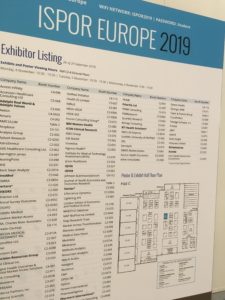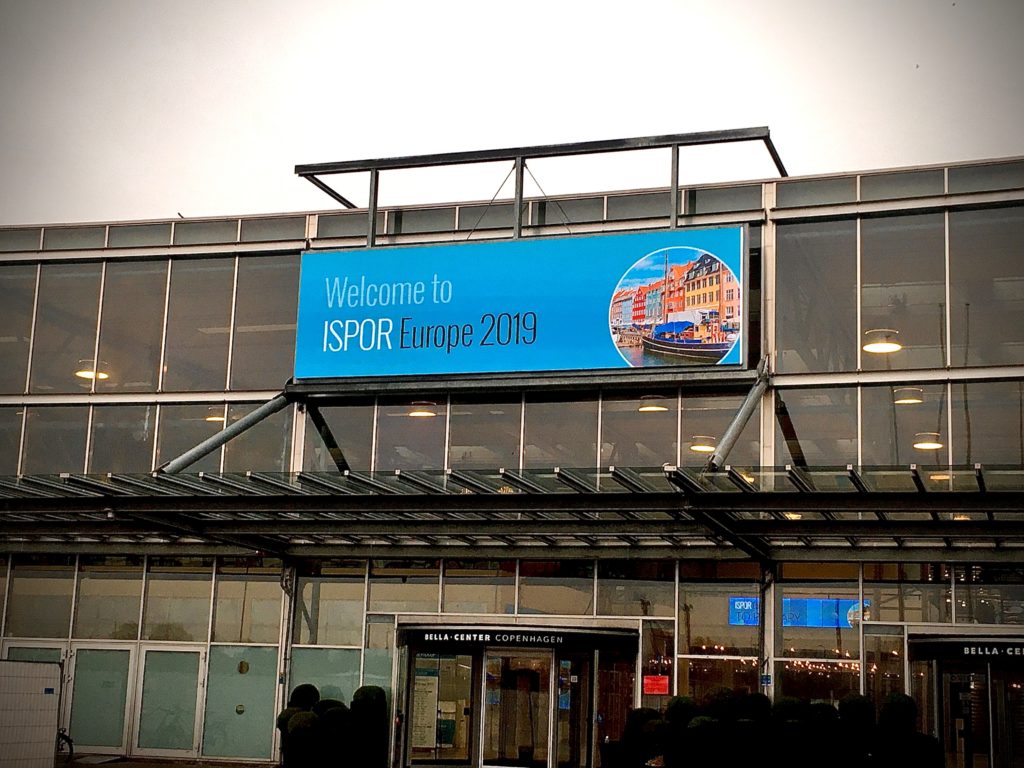Author: Robert Nagy
2019 European International Society for Pharmacoeconomics and Outcomes (ISPOR)

As a PhD student working on a project that is on the borderline of Data Science, Medical Informatics and Health Technology Assessment, I felt it was crucial for me to attend this year’s European International Society for Pharmacoeconomics and Outcomes (ISPOR) – the leading professional international organisation for health economics and outcomes research (HEOR) – conference held in Copenhagen, in early November. This was the biggest conference of its kind to date on the continent and had the main theme of ‘Digital Transformation of Healthcare: Changing Roles and Sharing Responsibilities’. The event attracted more than 5,500 global healthcare stakeholders and HEOR thought leaders representing more than 90 countries from all sectors of healthcare, including researchers and academics, assessors and regulators, payers and policymakers, the life sciences industry, healthcare providers, and patient engagement organisations.
Before the main conference began, I attended two hands-on pre-conference half day courses in budget impact analysis and model design held by world-leading experts. The organisers provided very detailed, useful printed course materials and software-based modelling tools that I plan to utilise during the implementation stage of my PhD.
The conference opened with the first plenary session on the 4th November, “Healthcare Digitalization: Instant, On Demand, and Always Connected.” New technologies are driving change in healthcare systems; influencing the way diseases are prevented, diagnosed, and treated. This panel explored the issue of digitizing healthcare and how this is impacting healthcare and health systems globally.
The second plenary session, “Shaping the Digital Healthcare System,” was held on the 5th November. Healthcare is changing rapidly with this transformation impacting every area of the healthcare system, including its structures, processes, policies, and practices. This panel examined how those working in healthcare are adapting to these unprecedented technological developments to deliver more productive, effective, and personalised care for patients.
The third and final plenary session, held on the 6th November, discussed the topic “Big Healthcare Data: Endless Opportunities for Research and Learning”. Big data present a tremendous opportunity for the measurement and reporting of quality in healthcare that can enhance insight and decision making. In this session, panellists discussed a number of examples where experts are effectively using big data for research and to drive learning at the healthcare system level.
ISPOR CEO and Executive Director Nancy S. Berg stated, “ISPOR Europe 2019 featured many innovative sessions centering on healthcare transformation fuelled by digital technologies. ISPOR’s largest conference to date (with more than 5500 registrants) convened a wide variety of healthcare stakeholders to help solve many of the challenges that impact healthcare and to advance HEOR excellence to improve healthcare decisions globally.”

A paradigm-shift featuring technological and system-wise transformation are therefore unavoidable. Coverage of the new, most efficient interventions and their support-mechanisms at scale pose an unsustainable financial and capacity burden on health systems worldwide. Thus, affordability issues in health care are perceived as a ‘global crisis’ today. Consequently, patient-level real-world data should be exploited to create affordable value-added health services.
Utilisation of vast healthcare data, creating better software applications and back-end IT infrastructure to generate real-world evidence, which can be used directly by healthcare decisions-makers regarding the adoption and distribution of new innovative health technologies, are all prominent topics on policy-makers’ agendas. Overall, this can promote more efficient health care provision and ensure better patient outcomes. We are in the midst of an era in which organisations and governmental bodies around the Globe have teamed up and really started to exploit data assets at scale by utilising the most advanced information technologies to solve a broad range of urging problems that challenges health systems’ sustainability and operations today. For me, witnessing these remarkable initiatives and actual transformations across Europe was an invaluable learning experience.





